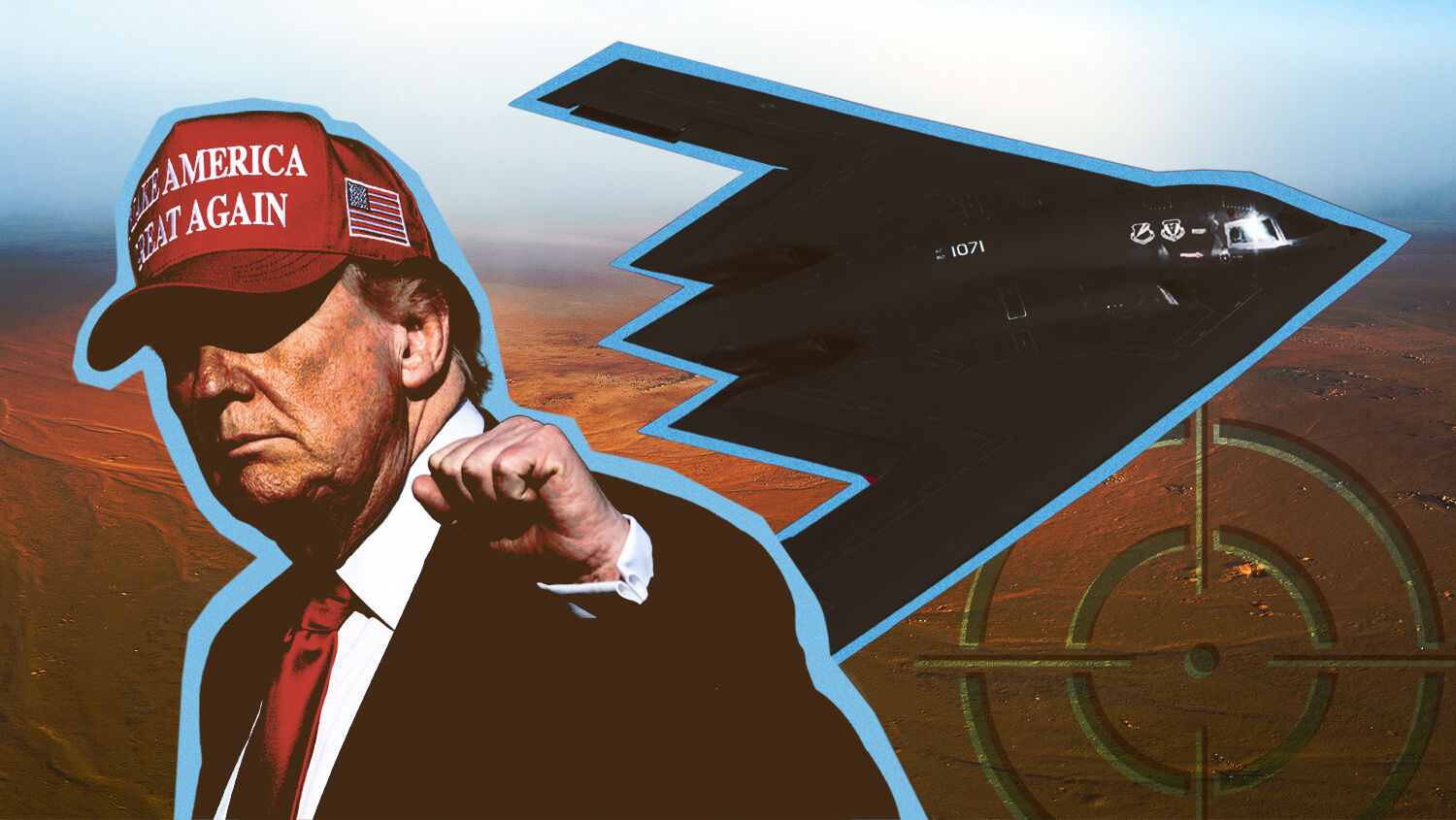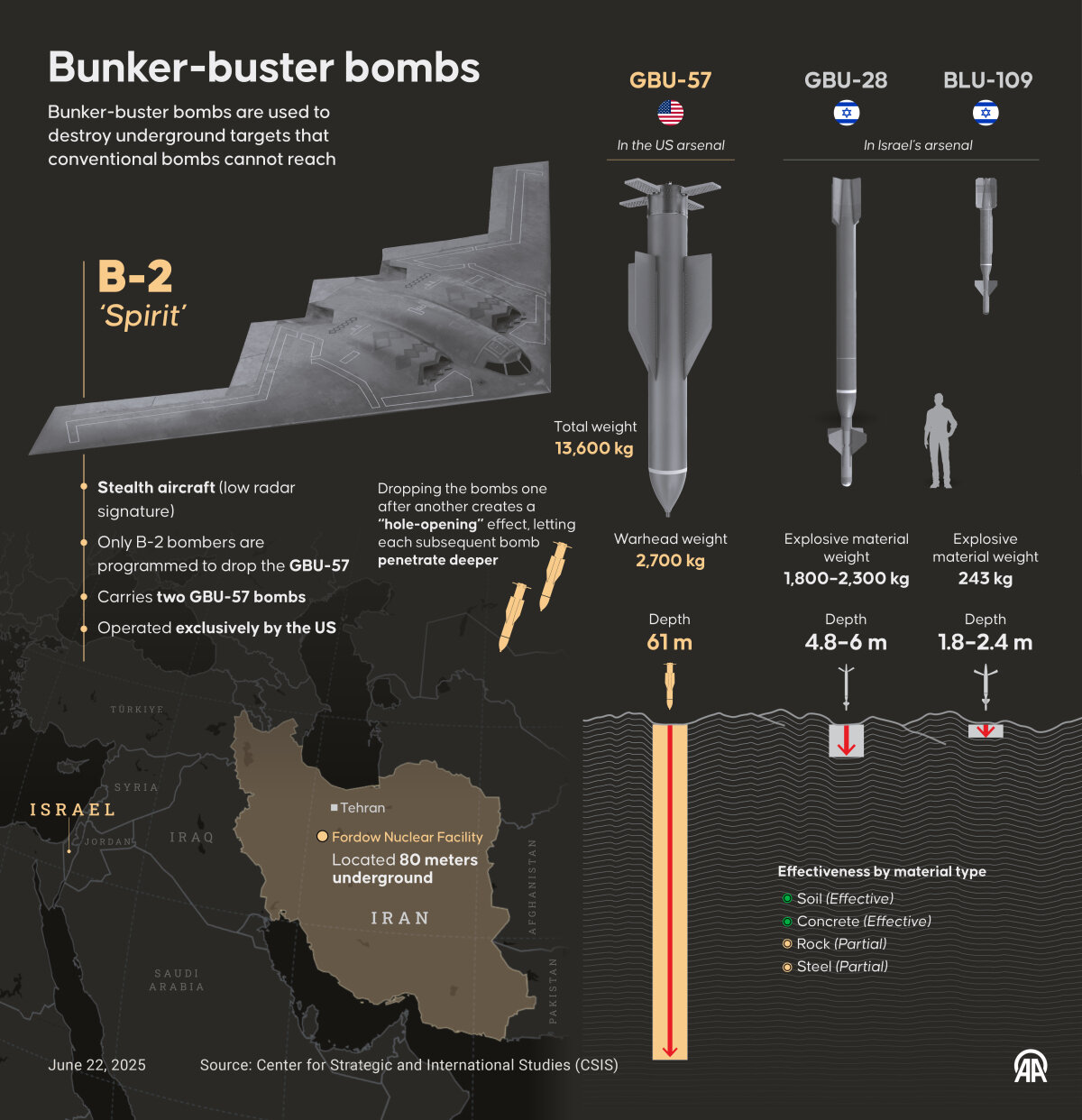
America Joins Israel’s War on Iran
In adding American firepower to Israel’s attack on Iran’s nuclear program, President Donald Trump showed his willingness to back threats with action and increased the pressure on the Iranian regime.
What happened: Sunday morning Iran time, the United States launched precision air strikes on three Iranian nuclear facilities: Fordow, Natanz and Isfahan.
- The operation involved B-2 stealth bombers dropping 30,000-pound bunker-buster bombs on the heavily fortified Fordow site, alongside cruise missile strikes from submarines targeting Natanz and Isfahan.
- Trump, in a televised speech Saturday night from the Oval Office, declared the strikes a success and warned Iran to pursue peace or face further attacks.
Obliterated? President Trump claimed the strikes “obliterated” Iran’s nuclear capabilities. Tehran denies significant damage.
- Iran’s state media reported no significant contamination or casualties, claiming key materials had been evacuated prior to the attack.
- Despite U.S. and Israeli claims, the International Atomic Energy Agency and Saudi Arabia reported no increase in radiation levels, and some analysts question the extent of damage to Iran’s deeply buried facilities.
Given the dispersed nature of Iran’s program, the significant fortification of its nuclear sites, and the extent of its enriched uranium stockpiles, the chances are very slim of Iran’s nuclear capabilities being completely destroyed. Iran likely retains enough infrastructure, material and expertise to continue its program, albeit with delays.

What happens next? It is easy to overestimate the effects of America joining forces with Israel against Iran. The notion that this regional powerhouse has been neutralized by several days of bombing, enthralling as it may be, ignores history and defies logic.
- In the past, military strikes on Iran have strengthened its determination to develop nuclear weapons as a deterrent against future attacks. If Iran’s nuclear program remains intact, even partially, the government’s urgency to weaponize it will likely be even more urgent.
- The belief that Supreme Leader Ali Khamenei’s deposition or death will bring about a moderate, West-friendly government in Tehran—as if the regime represents merely a fringe ideology in the nation—is wishful thinking.
- President Trump has shown himself willing to use American force in short, sharp bursts. He has no intent to embroil the U.S. in a protracted effort to reshape Iran’s role in the Middle East.
Bible prophecy says: A sweeping revision of Iran’s malevolent role in the Middle East also defies biblical prophecy.
Iran’s role as the end-time “king of the south,” described in Daniel 11:40-43 and clarified and amplified by other prophetic passages, informs us of how we can expect these dramatic events to develop. Several details have already been fulfilled:
- Prophecy accurately told us to expect Iran to lose its influence over the people of Gaza. Israel’s success over Hamas has accomplished this.
- Prophecy foretold Lebanon slipping from Iran’s orbit. Israel’s neutering of Hezbollah paved the way for this to occur.
- Prophecy also said Iran would lose Syria. That was dramatically fulfilled when the Assad regime fell in December.
But prophecy tells us to expect Iran to build a new “axis of resistance” with Egypt, Libya and Ethiopia. As we wrote in “Is Khamenei Finished?”, this will require some strength, authority and strategic coherence from the Iranians.
It also describes this Iran-led coalition provoking “the king of the north,” a multinational European empire. This could be an act of desperation, but it certainly will also require power, and nuclear capacity could well be involved.
The Israeli-American attack may have undermined Khamenei’s leadership. He reportedly just named three senior clerics as possible successors in the event that he is killed. The chances of his rule ending have certainly risen.
It could take a fresh firebrand to advance Iran’s cause as prophecy outlines. We may even see someone take power who seems more amenable to the West, someone willing to hold talks, to negotiate, to profess cooperation, and to make ostensible concessions. This may provide a strategic window for him to construct a new coalition such as prophecy describes.
In the end, however, the Iran that emerges will be more than capable of embroiling the world in a devastating war. To learn more, read The King of the South.
